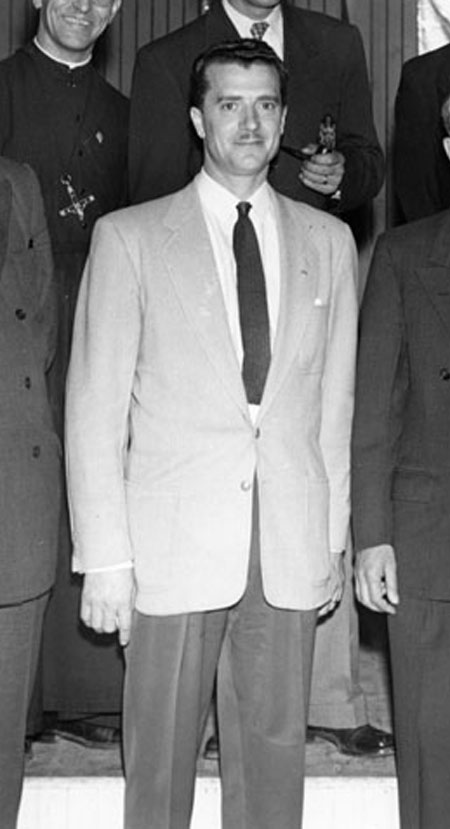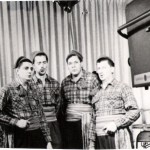Le fondateur de CFCL, Conrad Lavigne, 1954, Dessane Studio, Université d’Ottawa, CRCCF, Fonds Association canadienne-française de l’Ontario (C2), Ph2-127.
Coutoisie de l’Université d’Ottawa, Centre de recherche en civilisation canadienne-française (CRCCF).





